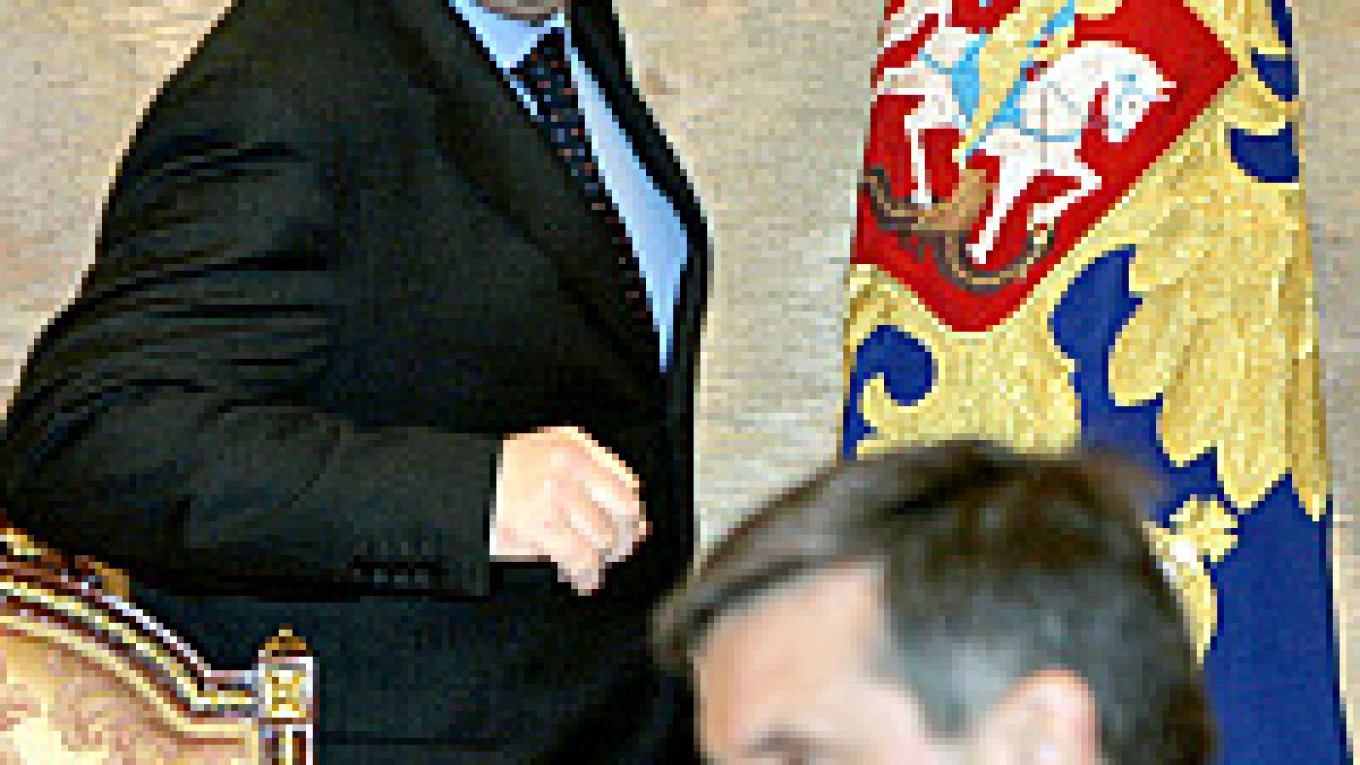Earlier this month, Khimprom, one of the country's largest chemical enterprises, ended production of military materials, Kommersant reported Monday. It used to be one of the country's main plants producing chemical weapons but now exclusively makes civilian products.
The decision to appoint Serdyukov chairman of Khimprom apparently was made in early February, when he still headed the Federal Tax Service. Serdyukov was made defense minister on Feb. 15 in a shakeup that saw Defense Minister Sergei Ivanov elevated to the rank of first deputy prime minister.
His appointment to the Khimprom post "should not be interpreted as meaning that the government is trying to gain greater control," said Mikhail Stiskin, a chemicals analyst with Troika Dialog.
Instead, Serdyukov's desire to be on the board of some company would have been instrumental.
"It's a question of prestige," said Stiskin, who said he did not expect Serdyukov to play a large role in the company. Serdyukov has no previous experience in the chemicals industry.
Ronald Smith, head of research at Alfa Bank, said Serdyukov's appointment was "not necessarily surprising [as] a lot of siloviki have been appointed to similar" posts.
Many senior officials serve as board chairmen of big companies. For example, First Deputy Prime Minister Dmitry Medvedev is chairman of Gazprom, presidential deputy chief of staff Igor Sechin is chairman of Rosneft, and Transportation Minister Igor Levitin is chairman of Sheremetyevo Airport.
Serdyukov was unanimously appointed chairman by Khimprom's board of directors, Interfax reported.
The state owns 51 percent of Khimprom's shares, while 35 percent belong to Renova Orgsyntes, which is part of billionaire Viktor Vekselberg's Renova Group. Khimprom is considered to be of strategic value and not a candidate for privatization, Kommersant said Monday.
But it makes sense for the government to sell its stake to Renova because Khimprom is loss-making and technologically very outdated, Stiskin said.
A Message from The Moscow Times:
Dear readers,
We are facing unprecedented challenges. Russia's Prosecutor General's Office has designated The Moscow Times as an "undesirable" organization, criminalizing our work and putting our staff at risk of prosecution. This follows our earlier unjust labeling as a "foreign agent."
These actions are direct attempts to silence independent journalism in Russia. The authorities claim our work "discredits the decisions of the Russian leadership." We see things differently: we strive to provide accurate, unbiased reporting on Russia.
We, the journalists of The Moscow Times, refuse to be silenced. But to continue our work, we need your help.
Your support, no matter how small, makes a world of difference. If you can, please support us monthly starting from just $2. It's quick to set up, and every contribution makes a significant impact.
By supporting The Moscow Times, you're defending open, independent journalism in the face of repression. Thank you for standing with us.
Remind me later.


